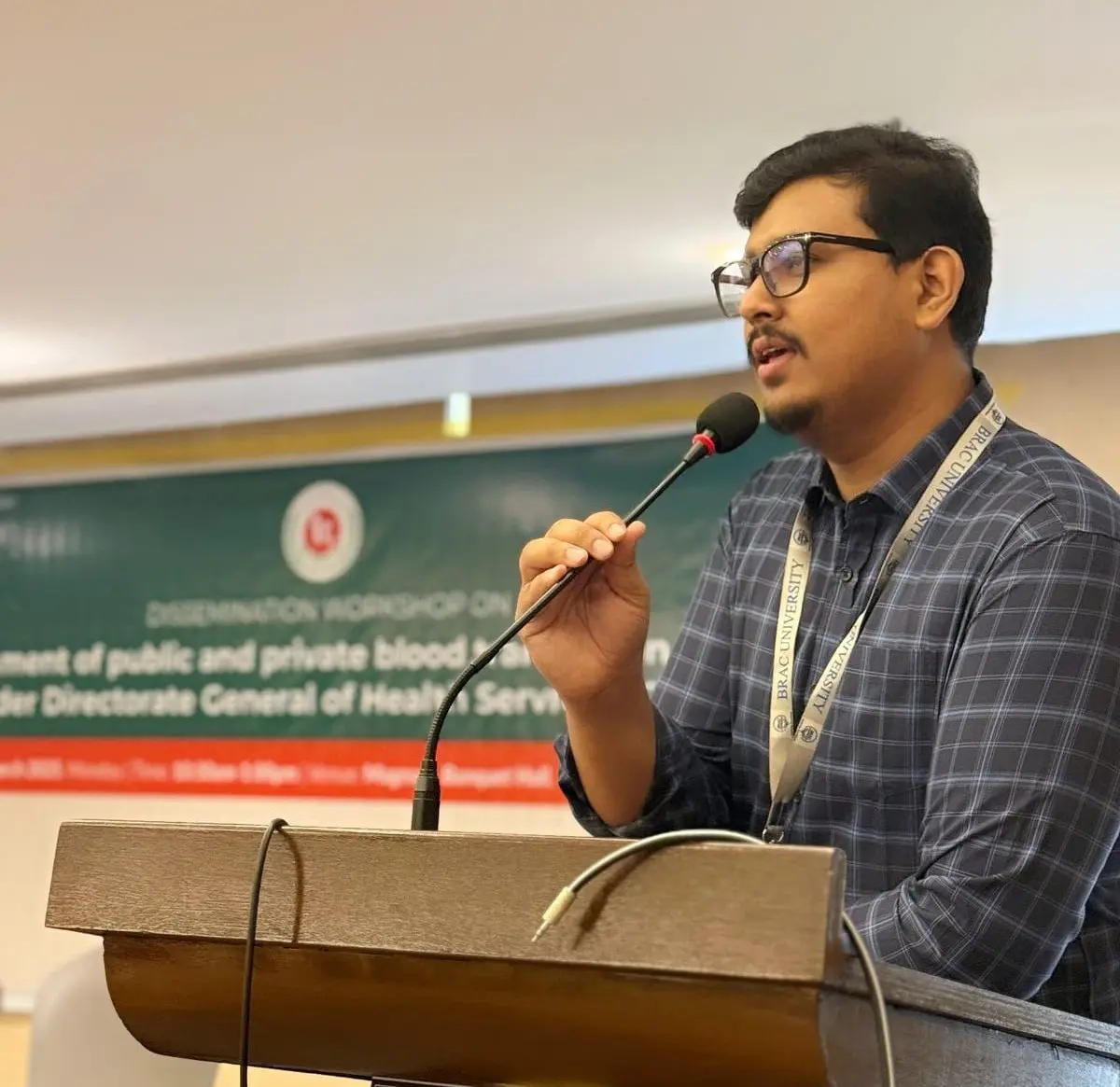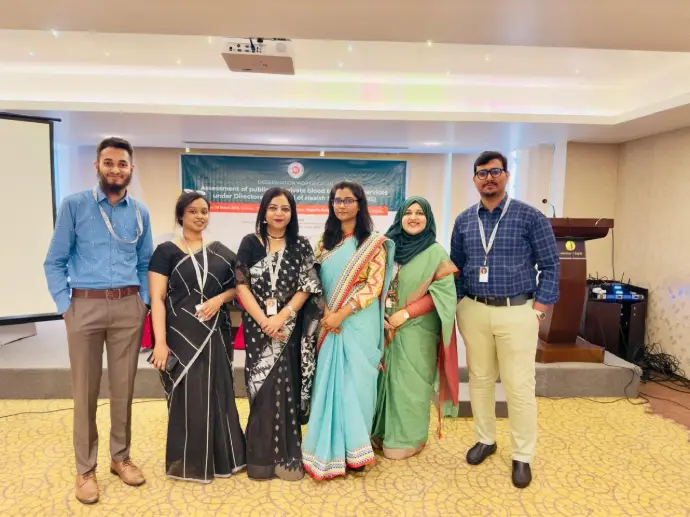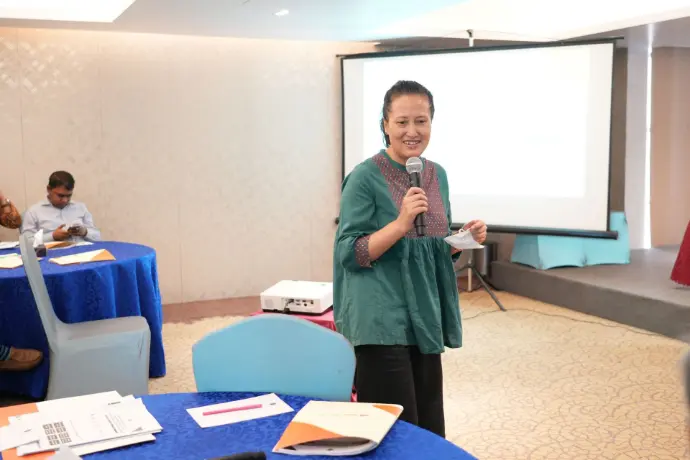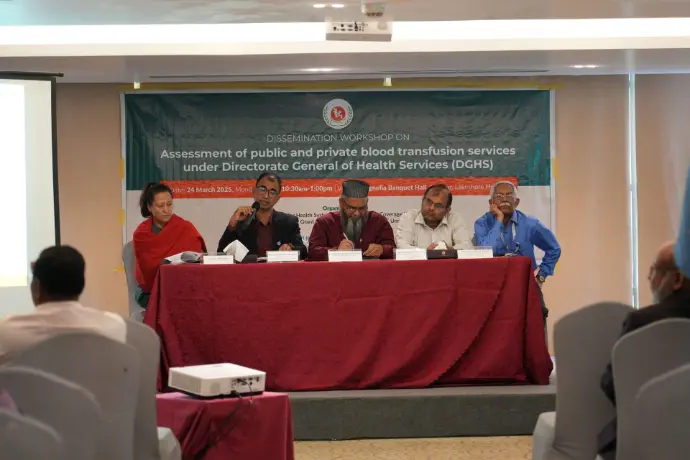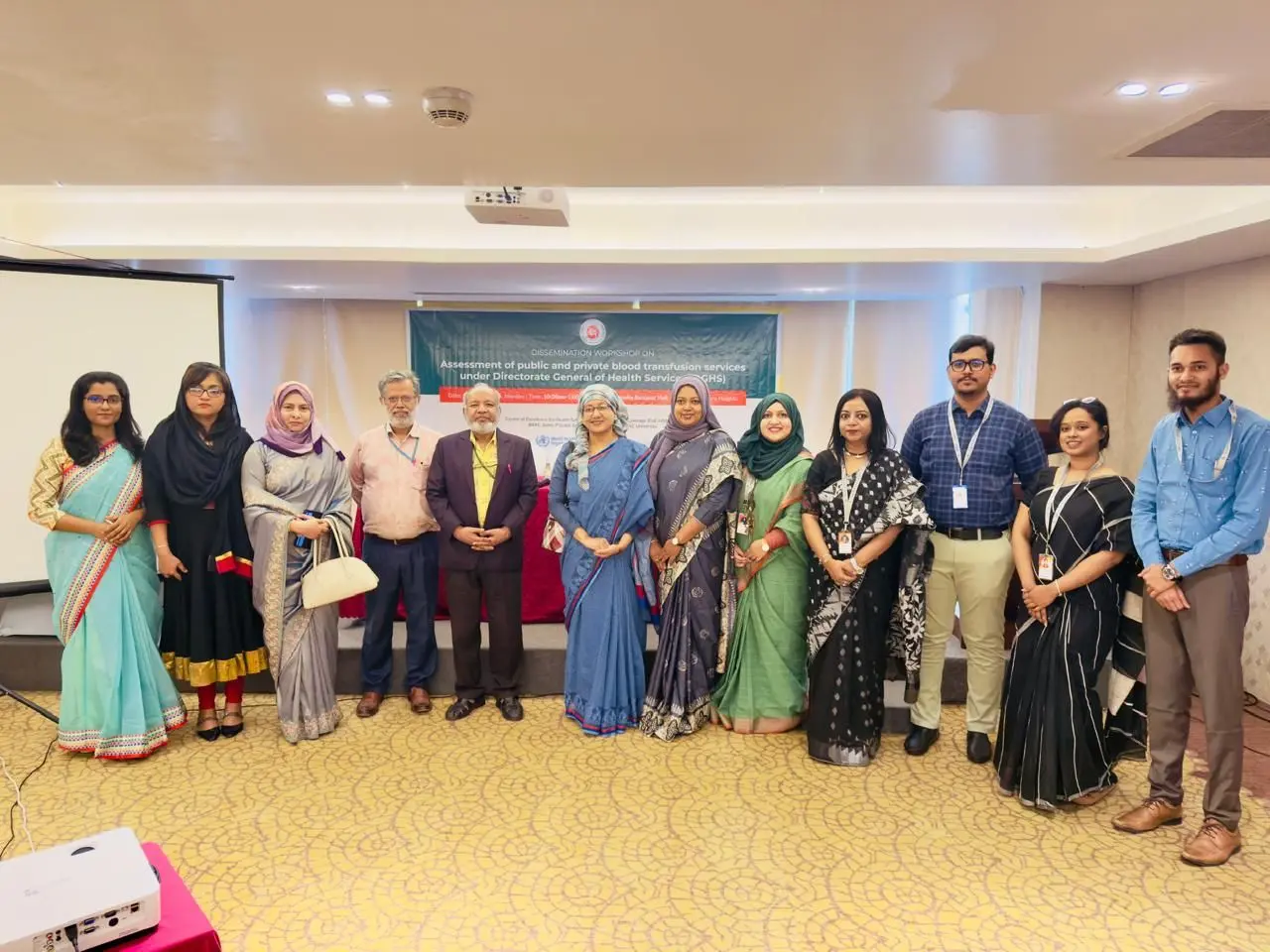I’m glad to share my experience contributing to the final stage of the national level assessment in public and private blood transfusion services in collaboration with the Directorate General of Health Services (DGHS).
This project allowed us to better understand how blood transfusion services are functioning across different types of facilities both public and private throughout the country. It helped us identify variations in service quality, infrastructure gaps, and areas where improvements are needed to ensure safe and reliable blood services. Importantly, the assessment also showed how effective collaboration between government bodies, development partners, and healthcare providers can play a vital role in strengthening quality assurance and regulatory systems.
I was primarily responsible for the quantitative part of the research, including sampling, digital tool development, field monitoring, data quality control, data cleaning, data management, data analysis, generating tables and graphs, and interpreting findings for the final report. My work focused on facility assessment data, and I led efforts to ensure data quality and accurate insights throughout.
After our initial analysis, we participated in the Validation Workshop held on 20 March 2025, organized by DGHS, where findings were reviewed and feedback was received from key stakeholders, including DGHS officials, WHO representatives, and professionals from public and private blood transfusion centres across the country.
Following this, we successfully hosted the Dissemination Workshop on 24 March 2025 to present our final report and recommendations. I was proud to play a dual role, both as a technical support and part of the organizing team. Beyond data analysis, I contributed to organizing the entire dissemination event, which included communication and coordination with stakeholders (government officials, civil surgeons, hospital directors, BTS focal persons, WHO country team), venue and logistics management, invitation dispatch, food and hospitality arrangement, and overall program coordination.
On the day of the dissemination, I was also responsible for handling queries and clarifications related to quantitative findings alongside my team, ensuring technical clarity in front of a high-level audience that included directors and line directors from DGHS, WHO Bangladesh, and representatives from hospitals and blood banks.
This experience strengthened my skills in quantitative research, data-to-decision support, event coordination, and cross-sector collaboration. It was a valuable opportunity to witness how rigorous research and data can directly inform health systems improvement at the national level.
